#Cloud cost management
Explore tagged Tumblr posts
Text
3 notes
·
View notes
Text
Maximize AI Efficiency with UnifyCloud’s AI Cost Optimization Solutions
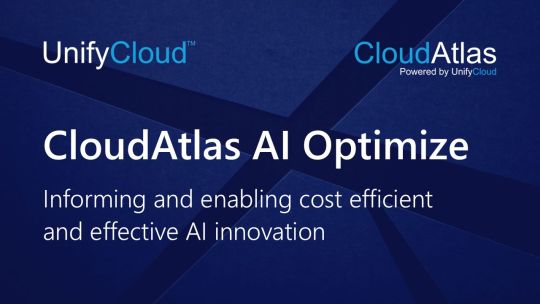
Artificial Intelligence (AI) has transformed the way businesses operate, offering unparalleled opportunities for automation, predictive insights, and enhanced decision-making. However, AI adoption comes with significant cost challenges, including infrastructure expenses, computing power requirements, and inefficient resource utilization. Without a well-structured cost optimization strategy, organizations may struggle with skyrocketing AI-related expenditures.
UnifyCloud offers AI Cost Optimization solutions through its CloudAtlas AI Optimize platform, helping businesses maximize efficiency, reduce operational costs, and ensure sustainable AI deployments. Our AI-driven approach to cost optimization empowers organizations to get the most value from their AI workloads while maintaining performance, security, and compliance.
The Growing Need for AI Cost Optimization
With the rapid adoption of AI models, enterprises often encounter unforeseen costs related to cloud infrastructure, storage, and computing resources. Key challenges include:
Excessive Cloud Costs: Organizations often overprovision cloud resources, leading to unnecessary expenses.
Inefficient Model Training and Execution: AI models require significant computational power, resulting in high energy consumption and operational costs.
Scalability and Resource Allocation Issues: Poorly optimized AI deployments may struggle with scalability, causing performance bottlenecks and inefficiencies.
Compliance and Governance Costs: Managing regulatory requirements and ensuring data security adds additional financial burdens.
To address these challenges, businesses need an advanced AI cost optimization strategy that enhances efficiency without compromising AI performance. UnifyCloud’s CloudAtlas AI Optimize provides a data-driven and automated approach to optimizing AI costs across cloud environments.
UnifyCloud's AI Cost Optimization Solutions
1. CloudAtlas AI Optimize – Intelligent Cost Management
CloudAtlas AI Optimize is a comprehensive AI-powered cost optimization solution designed to help businesses analyze, manage, and reduce AI-related expenses. Our approach leverages cloud-native cost analysis tools, predictive analytics, and automation to ensure optimal resource utilization.
Key Features:
Automated Cost Assessment: AI-driven insights to identify cost-saving opportunities.
Predictive Cost Modeling: Forecasting AI workload expenses to prevent cost overruns.
Dynamic Resource Allocation: Intelligent scaling to optimize cloud resource consumption.
Waste Reduction: Eliminate underutilized or redundant AI workloads to reduce unnecessary spending.
Multi-Cloud Cost Visibility: Seamlessly track and manage AI expenses across Azure, AWS, and Google Cloud environments.
2. AI Cost Optimize – Strategic AI Cost Reduction
Our AI Cost Optimize solution offers targeted strategies to optimize AI infrastructure costs, improve efficiency, and ensure seamless AI performance.
How AI Cost Optimize Works:
AI Workload Right-Sizing: Identify the right-sized cloud infrastructure and computing power to match AI processing needs without overprovisioning.
Optimized AI Model Training: Reduce training time and compute power requirements using efficient AI algorithms and model compression techniques.
Cost-Aware AI Deployment Strategies: Implement cost-effective AI pipeline workflows to optimize deployment.
Granular Cost Monitoring: Real-time tracking of AI operational costs to ensure budgets remain on target.
Benefits of UnifyCloud’s AI Cost Optimization Solutions
By integrating CloudAtlas AI Optimize into your AI strategy, organizations can achieve substantial benefits:
1. Cost Savings Without Compromising Performance
Our solutions optimize cloud spending by eliminating waste, ensuring that AI workloads run efficiently without unnecessary expenses.
2. Enhanced AI Model Efficiency
By leveraging AI model compression and efficient training techniques, businesses can reduce training times and compute costs.
3. Intelligent Automation for Cost Management
Automated cost analysis and predictive cost modeling enable proactive cost control and budget forecasting.
4. Multi-Cloud Cost Governance
With visibility into Azure, AWS, and Google Cloud, businesses can manage AI expenses across multiple cloud providers seamlessly.
5. Improved Scalability and Resource Utilization
Our solutions ensure that AI workloads scale dynamically based on demand, optimizing cloud resource allocation.
Use Cases: Real-World AI Cost Optimization Success Stories
1. AI-Driven Financial Services Cost Optimization
A leading financial institution leveraged CloudAtlas AI Optimize to reduce cloud infrastructure costs by 30% while improving AI-driven risk analysis efficiency. By implementing AI workload right-sizing and automated cost assessment, the company optimized its cloud spend without compromising performance.
2. Healthcare AI Cost Management
A global healthcare provider used AI Cost Optimize to enhance AI-powered medical diagnostics while reducing model training costs by 40%. Our solutions optimized the model training process, ensuring reduced cloud computing expenses while maintaining high diagnostic accuracy.
3. Retail AI Scalability Optimization
A major e-commerce company applied CloudAtlas AI Optimize to scale AI-powered demand forecasting models dynamically. By optimizing AI compute resource allocation, the company saved 25% on cloud expenses while improving predictive accuracy.
How to Get Started with UnifyCloud’s AI Cost Optimization Services
Optimizing AI costs is essential for long-term scalability and success. UnifyCloud’s CloudAtlas AI Optimize solutions provide a structured, automated, and AI-driven approach to cost management.
Step 1: AI Cost Assessment
We begin with an in-depth cost assessment to identify inefficiencies and potential savings.
Step 2: Strategy Development
We design a tailored AI cost optimization strategy aligned with business goals and AI workload requirements.
Step 3: Implementation & Automation
Our AI-driven solutions are deployed to automate cost monitoring, optimize resource allocation, and reduce AI infrastructure expenses.
Step 4: Continuous Optimization & Governance
We provide ongoing support to ensure AI workloads remain cost-efficient with real-time tracking and AI-driven recommendations.
Conclusion: Optimize AI Costs with Confidence
AI adoption is essential for business growth, but managing its costs effectively is critical for long-term success. UnifyCloud’s AI Cost Optimization solutions, powered by CloudAtlas AI Optimize, enable businesses to maximize the value of AI investments while minimizing costs.
By leveraging automated cost assessments, predictive analytics, and intelligent resource allocation, UnifyCloud helps organizations achieve sustainable AI efficiency. Ready to take control of your AI expenses? Learn more about our AI cost optimization solutions at CloudAtlas AI Optimize and AI Cost Optimize.
#AI Cost Optimize#AI Cost Optimization#Azure Cost Monitoring#Cloud Cost Management#Cloud Cost Optimization#AI Factory
0 notes
Text
Microsoft 365 Security Mastery: Essential Tips for a Safe 2025
youtube
#microsoft 365 security for 2025#microsoft 365#office 365#microsoft licensing#cloud cost management#Youtube
0 notes
Text
Cloud Cost Management vs. FinOps: Five Key Differences That Matter
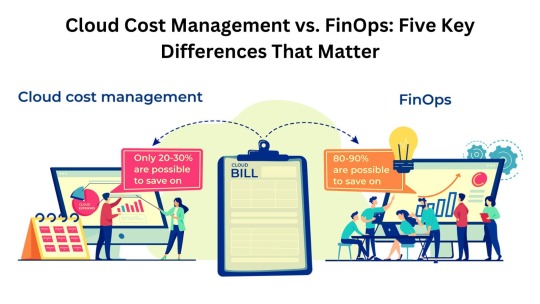
Cloud Cost Management focuses on tracking, optimizing, and reducing cloud expenses. FinOps, or Financial Operations, integrates financial accountability with cloud usage, encouraging cross-team collaboration. Key differences include approach, team involvement, scope, metrics, and automation. While Cloud Cost Management is cost-centric, FinOps emphasizes business value, real-time insights, and shared responsibility across engineering, finance, and operations teams.
0 notes
Text
Multi-Cloud Cost Optimization: Proven Strategies for Reducing Cloud Spend with ITTStar Consulting
Discover expert tips for managing and reducing cloud costs in a multi cloud environment. Learn how ITTStar Consulting helps businesses optimize cloud spend with effective cost management strategies and tools.
0 notes
Text
The Role Of Automation In FinOps: Streamlining Cloud Cost Management
Automation emerges as a transformative force, reshaping cloud cost management tools. By seamlessly integrating automation into FinOps methodologies, organizations can simplify financial processes, boost operational efficiency, and exert precise control over their cloud expenditures.
#public cloud services#cloud migration#cloud financial management#cloud services#FinOps automation#FinOps automation solutions#cloud FinOps#cloud cost management
0 notes
Text
Want to know why your cloud costs exceed your budget? 3 major cloud costs challenges To understand why your cloud costs exceeds your budget, it’s important to understand all the elements that influence your cloud costs. Amidst the myriad of advantages that cloud offers, cloud cost is a critical aspect that organizations must master for a seamless cloud experience. Understanding and effectively managing cloud costs are crucial components of optimizing costs and maximizing the value derived from cloud services.
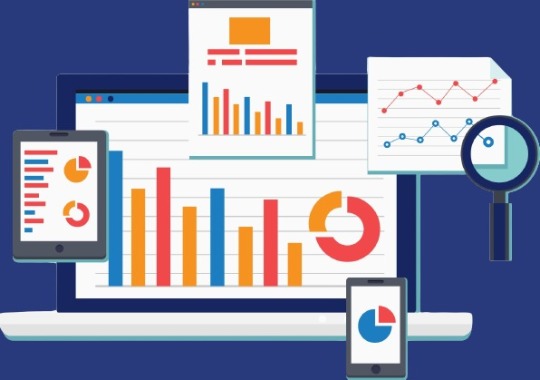
#clouds#cloudcost#cloud cost optimization#cloud cost management#cloudsavings#finops#multicloud#oraclecloud#gcp#aws#azure#cloudcostmanagement
0 notes
Text
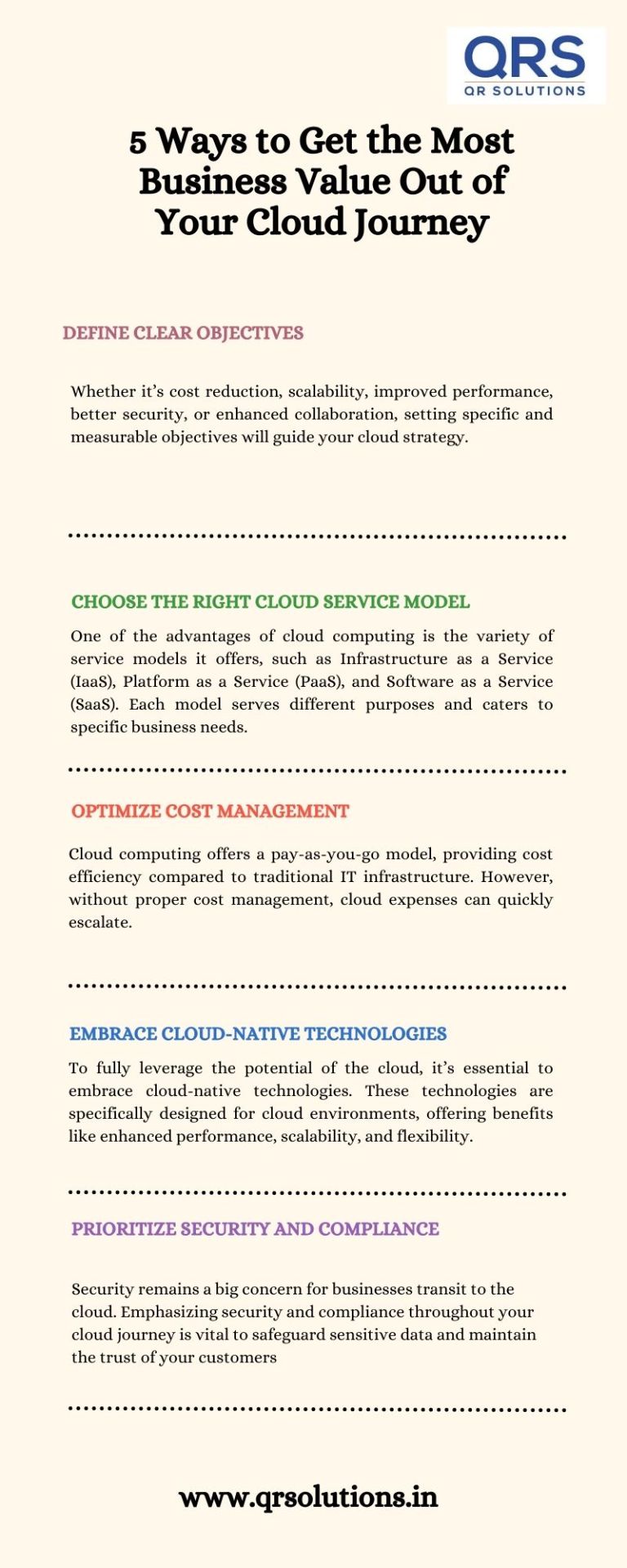
In today’s fast-paced digital landscape, the cloud has emerged as a transformative technology that empowers businesses with flexibility, scalability, and cost-effectiveness. Migrating to the cloud is no longer an option but a necessity to stay competitive.
#Cloud migration strategies#Business value optimization#Cloud journey best practices#Cloud adoption benefits#Cost-effective cloud utilization#Cloud-native applications#Cloud scalability#Hybrid cloud solutions#Cloud security measures#Cloud cost management#Cloud performance monitoring#Cloud vendor selection#Cloud infrastructure optimization#Cloud data management#Agile cloud transformation
0 notes
Text
Maximizing the Potential of ChatGPT: Unveiling Unique Strategies for Cloud Solution Architects
The role of Cloud Solution Architects is ever-evolving, demanding adaptability to the latest tools and technologies. Amid this landscape, ChatGPT emerges as a game-changer, offering AI-powered capabilities that can significantly enhance the architect’s effectiveness. This article delves deep into the lesser-known secrets of using ChatGPT, revealing how Cloud Solution Architects can leverage its…

View On WordPress
#AI-powered Solutions#Architecture Design#ChatGPT#cloud computing#Cloud Cost Management#Cloud Solution Architecture#Code Automation#cost optimization#Dynamic Documentation#Innovative Strategies#Real-time Troubleshooting#Simulation
1 note
·
View note
Text
Looking for the Best Cloud Cost Optimization Services? Choose Gsoft
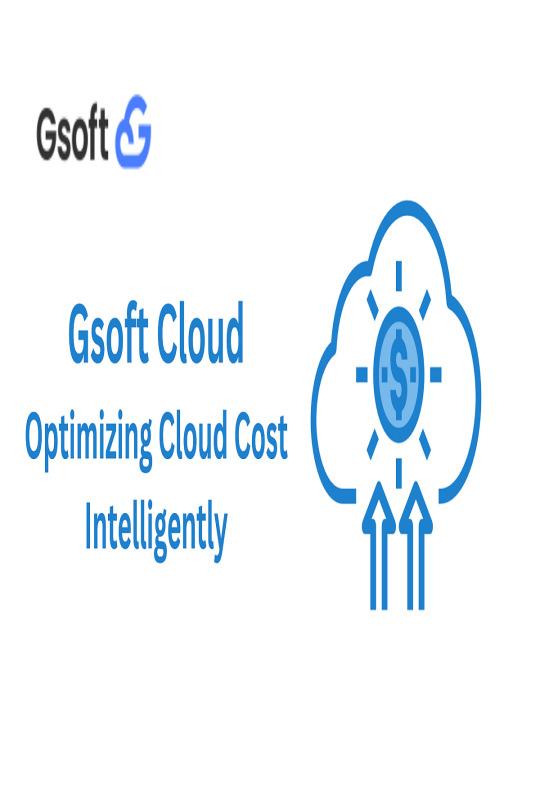
Explore the best cloud cost optimization services from Gsoft Cloud. Reduce your cloud spend with innovative cloud cost optimization techniques.
0 notes
Text
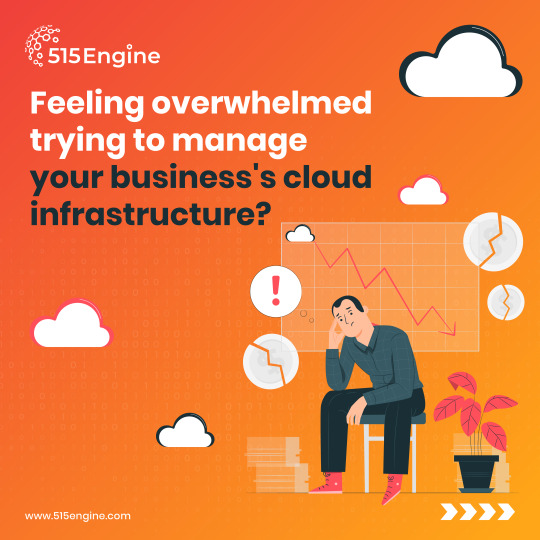
our body and Your Cloud Costs - should always be weightless!
Managing cloud infrastructure is difficult with constantly changing components, services, and costs.
As this post explores, expert cloud cost consultants can be invaluable partners.
Their usage analysis and right-sizing of resources can save you up to 50% on monthly cloud bills.
So if your business feels overwhelmed by intricate cloud management, check out these examples of how cloud consultants can help steer you in the right direction!
0 notes
Text
Small businesses in every industry are increasingly relying on cloud computing to drive innovation, optimize efficiency and scale seamlessly. And the cloud services these businesses rely on do offer numerous benefits. Cloud solutions are incredibly flexible, easily accessible, cost effective and innovative. And, when leveraged intelligently, cloud computing can be the difference between short-lived success and a lasting competitive advantage.
Unfortunately, many small businesses aren’t prepared to handle the sky-high costs of uncontrolled cloud spending. Because without proper cost optimization strategies in place, cloud spending can quickly spiral out of control, hurting the bottom line of the businesses it aims to support.
That’s where Cloud FinOps comes into play.
FinOps, meaning the combined practice of “finance” and “DevOps,” is a management practice that focuses on optimizing the financial performance of a cloud computing infrastructure so the company as a whole can use cloud computing efficiently. It drives greater business value by helping every department, from IT to finance, recognize how their cloud usage can be contributing to the company’s overall costs — so decision-makers can minimize waste at every level.
Read more:- https://escalon.services/blog/can-these-cloud-finops-solutions-save-your-small-business-money/
#FinOps#Cloud FinOps solutions#Cloud cost management#FinOps for small businesses#Cloud financial analysis
0 notes
Text
Optimizing Cost Management Strategies for Your Cloud Environment
As the world becomes increasingly digital, more and more businesses are turning to cloud computing to store and manage their data. While this technology has a number of advantages, it can also be expensive if not managed properly. With the right cost management strategies, however, businesses can optimize their cloud environments and achieve significant cost savings. In this article, we’ll…
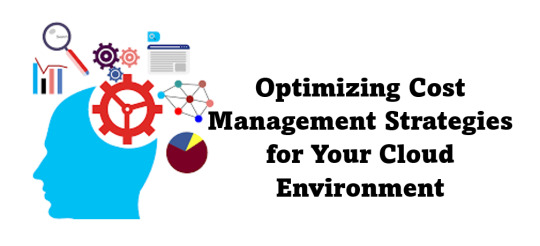
View On WordPress
#Cloud cost#Cloud cost management#Cost Management#Cost management strategies#Managing cloud cost#Optimizing Cloud cost
0 notes
Text
What is FinOps, and How Can It Help Your Cloud Cost Management?

What is FinOps?
Combining operational and financial management, FinOps is a business discipline that consists of guidelines and technology to maximise the efficiency of cloud-based enterprise spending.
"FinOps" is a term that refers to "FinOps" that comes from the DevOps software development model, which includes a financial element and emphasises collaboration and communication between the various teams that make cloud-based services.
FinOps is a fairly new concept in the cloud computing market that is currently being developed and implemented to assist companies in implementing their IT systems in a more intelligent, efficient, transparent, and effective manner. FinOps is closely related to an approach to cloud cost optimisation; however, let's look at the distinction.
Cloud cost management services are created for a small group of IT people who conduct the analysis. They get an extensive report detailing the things they should enhance or modify, and then theoretically, they have to apply these findings to cut down on the cloud's cost. However, in reality, IT personnel will only be able to handle 20% to 30% of the report on their own, and for the remaining portion, they will need to work with resource owners to explain to them what should be done and the reasons why they should be doing that. The resource owners are engineers who manage their work as well as testing, R&D, and tests.
FinOps is designed to connect the engineers in an efficient and cost-saving procedure.
FinOps also, in turn, involves the entire FinOps team in the process of reducing costs. This team includes senior engineering leaders, a finance team, and engineers, who are the primary cost generators as they operate automation, create VMs, and fail to tidy up. The correct FinOps software will provide specific recommendations for IT personnel to take care of the cost of cloud services that are low-hanging fruit optimizations and engineers to monitor and report on their cloud resources.
Visit us: https://www.perfectiongeeks.com/what-is-finops-and-how-can-it-help-your-cloud-cost-management
#Cloud Cost Management#Cloud Cost Management services#website design services#blockchain application development#app development#ios app development#perfectiongeeks#web development#iot development services
0 notes
Text
How to Use Telemetry Pipelines to Maintain Application Performance.
Sanjay Kumar Mohindroo Sanjay Kumar Mohindroo. skm.stayingalive.in Optimize application performance with telemetry pipelines—enhance observability, reduce costs, and ensure security with efficient data processing. 🚀 Discover how telemetry pipelines optimize application performance by streamlining observability, enhancing security, and reducing costs. Learn key strategies and best…
#AI-powered Observability#Anonymization#Application Performance#Cloud Computing#Cost Optimization#Cybersecurity#Data Aggregation#Data Filtering#Data Normalization#Data Processing#Data Retention Policies#Debugging Techniques#DevOps#digital transformation#Edge Telemetry Processing#Encryption#GDPR#HIPAA#Incident Management#IT Governance#Latency Optimization#Logging#Machine Learning in Observability#Metrics#Monitoring#News#Observability#Real-Time Alerts#Regulatory Compliance#Sanjay Kumar Mohindroo
0 notes